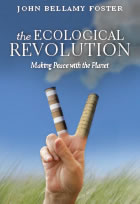
By Susan Austin
June 26, 2009 – Hobart, Tasmania -- Along with over 400 other people, I turned up to the Wrest Point Casino here to attend the premiere of The Burning Season on June 1. I had the film’s headline -- “As inspiring as The Inconvenient Truth was frightening” in the back of my mind, hoping for a good news story. Instead I sat through a well-orchestrated promo for a carbon trading company, set up by a young Australian-based millionaire whose message was that it is possible to make money and save the environment at the same time.By setting up a carbon trading company called Carbon Conservation, and brokering high-level deals between big banks and provincial Indonesian governors, the film’s “star”, young entrepreneur Dorjee Sun, was able to secure the protection of large areas of forests that may otherwise have been logged or burnt.









